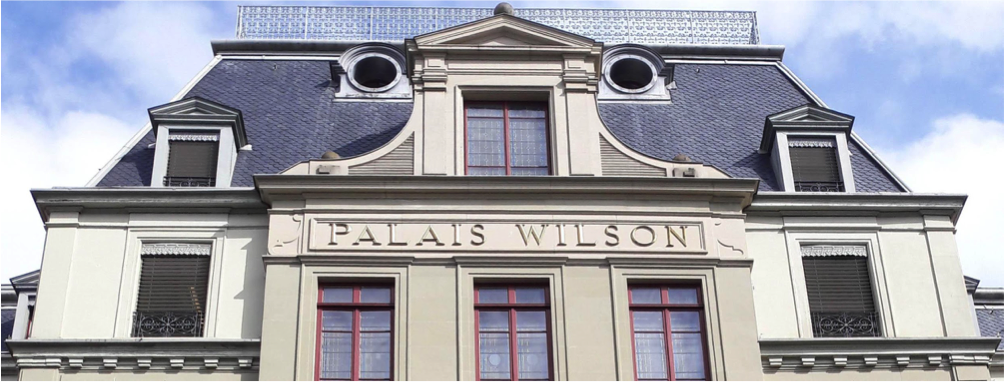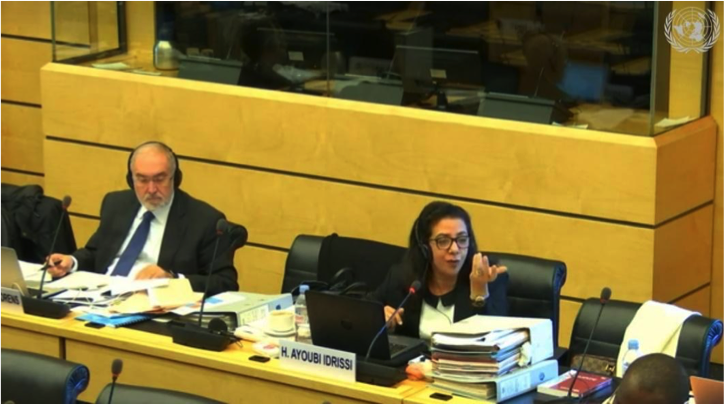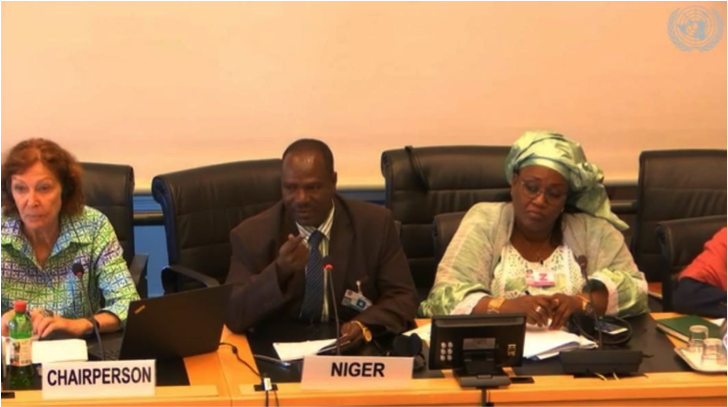From 24 to 28 September, the Children’s Rights Committee met at the Palais Wilson to ensure that children’s rights are being properly implemented and respected in Niger and Benin.
These two West African countries, face problems of poverty and population explosion. Both countries gave a summary of their work in previous years, following which experts from the Children’s Rights Committee raised issues that continue to be present despite the efforts undertaken.

After several discussion sessions, the Children’s Rights Committee highlighted several issues that remain to be resolved in Niger. First among these is the legal definition of a child, as the term is not clearly defined.
Similarly, legislative harmonisation is an urgent matter, believes the Committee, as Niger is currently subject both to civil law and customary law. As a result of this distinction, a variety of problems occur that violate children’s rights (early marriage, amongst others). The Committee also asked for the legal age of marriage to be increased to 18 years old for girls. In addition, the Committee experts raised the serious issue of birth registration, as there is insufficient control in this area, resulting in a lack of demographic tracking.
Regarding legislation, the Children’s Rights Committee asked for a specific provision to be drafted to prevent children being sent to fight in armed conflicts, as well as health legislation (to combat certain diseases, in particular tuberculosis) and expressed its alarm at the urgent need to reduce mortality rates.
It also recommended that Niger focus on its education budget and on the issue of sex tourism (to this end, an expert recommended that Niger contact the NGO ECPAT).
Finally, a heated debate was held on the sale of children, a practice that is not formally forbidden in Niger’s penal code as it should be in accordance with the Optional Protocol to the Convention on the Rights of the Child on the sale of children, child prostitution and child pornography. As such, the Committee requires that the Penal Code be adapted.
Regarding Benin, the same problems regarding data collection and demographic management were raised. The Committee raised concerns about the fact that just 50% of children are registered.

Experts also warned of the contemptible practice unique to Benin, the phenomenon of ‘Vidomégons’, which involves placing children in host families, where in most cases they are used as cheap labour. Thousands of children are exploited, and sometimes mistreated, in this way in the name of this local tradition.
The representatives of Benin present at the meeting (the Minister of Justice) stated that the practice has become less common due to the introduction of free education and the establishment of canteens, ensuring thus that children remain in school and providing financial relief to families who would otherwise be tempted to send them to work.
Also on the topic of child exploitation, the Committee warned the country of the plight of begging children as well as ‘child witches’, and the issue of children born with albinism and the fate to which they are subjected (they are considered to a be a curse by parents and thus are frequently sacrificed).
Finally, the Committee expressed its regret that Benin’s penal code is still awaiting adoption. Experts also expressed concern regarding the lack of legislation against all forms of child exploitation, including forced labour. In addition, the Committee raised one of the topics previously raised with Niger – the criminalisation of the sale of children – with Benin, as the practice is not formally banned and as such, the country requires a provision to outlaw it.
At Humanium, we strive to defend the rights of every child all over the world by raising awareness of our cause among adults and children alike, by changing attitudes and by working directly in the field.
Visit our website, https://www.humanium.org/en, to find out more about children’s rights and our work, to contact the Humanium team, and to stand with us as we help to improve the lives of thousands of children all over the world!
Written by Eddy Malouli
Translated by Garen Gent-Randall
Proofread by Anousha Duva


